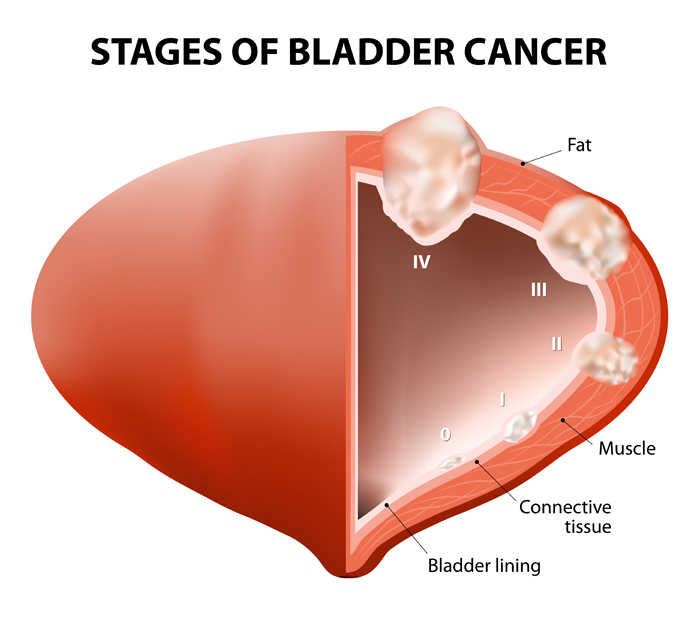Best Bladder Cancer Treatment & Diagnostics in Karol Bagh, Delhi
Bladder cancer develops in the cells of the bladder. Bladder cancer is highly treatable if diagnosed in the early stages. A bladder cancer specialist in Karol Bagh will prefer a minimally invasive treatment for your bladder cancer.
In fact, bladder cancer doctors in Karol Bagh prefer Transurethral Resection (TUR) for bladder cancer. It is a surgical procedure that is performed by your doctor to diagnose bladder cancer and also to remove cancerous tissues from your bladder.

What is transurethral resection?
Transurethral resection for bladder cancer is also known as TURBT or transurethral resection for bladder tumours. Bladder cancer doctors near you will use general anesthesia or spinal anesthesia while performing this procedure. During the procedure, a cystoscope is passed into your bladder through your urethra. A resectoscope is used to remove the tumor to be sent for biopsy. The remaining cancer cells are burnt away.
After the surgery, your doctor will place a catheter inside your urethra to stop bleeding and also to prevent any blockage in the urethra. The catheter is removed after your bleeding stops.
After the procedure, you may have blood in your urine for two to three weeks. You may also need to urinate more frequently. But these will improve with time. You will need to stay at a bladder cancer hospital in Karol Bagh for one to four days after the surgery.
Who qualifies for the procedure?
- Patients who require a biopsy
- Patients who have been diagnosed with bladder cancer
- Patients who require resection or removal of cancer cells from the bladder
- Patients who are in their early stages of bladder cancer
Why is transurethral resection of bladder cancer conducted?
Transurethral resection for bladder cancer is done for diagnosing, staging and treating bladder cancer. A bladder cancer specialist near you will perform TURBT to diagnose whether there are cancer cells inside your bladder. The procedure also determines whether your bladder cancer is spreading to your bladder wall. While conducting the procedure, if your doctor notices tumors or cancer cells, he/she will remove them. The procedure is preferred by doctors because it is minimally invasive with fewer risks involved.
What are the benefits?
- Transurethral resection of a bladder tumor or TURBT involves both diagnosis and treatment.
- It is a minimally invasive procedure and therefore, involves less risk and is less painful.
- The hospitalization period is also shorter, between one and four days.
- It involves both biopsy and tumor removal.
- The procedure can prevent cancer from spreading to the muscle wall.
Request an appointment at Apollo Spectra Hospitals, Karol Bagh, New Delhi.
Call 1860 500 2244 to book an appointment.
What are the risks?
- You should contact a bladder cancer hospital near you if your bleeding post procedure gets worse or if you see blood clots in your urine. You can’t pass urine and there is severe pain while passing urine.
- You might be having an infection if you have a high temperature, if your urine is cloudy and smells bad, if there is a burning sensation while urinating or if you need to urinate frequently.
- Very rarely, TURBT might lead to a small perforation in the bladder. It generally goes away with a catheter but in certain cases, you might need surgery.
- The area where they put the needle in for the cannula might get bruised.
- The anesthetic or antibiotic might cause excessive pain and swelling.
Conclusion
Bladder cancer can come back. Therefore, your bladder cancer doctors in Karol Bagh will insist on frequent checkups. The risks of performing a TURBT are minimal and your doctors might burn the new cancer cells or small tumors. If the TURBT results show signs of advanced bladder cancer, your doctor will consider further treatment.
It will take two to six weeks from the day of the surgery to recover fully after the procedure of transurethral resection.
If your bladder cancer belongs to a higher grade, you will require a second TURBT two to six weeks after the first procedure to ensure that all the cancer cells are removed properly.
After the TURBT procedure, you might bleed for some time. You might also feel pain while urinating. You are discharged from the hospital within 1 or 4 days.
Symptoms
Our Top Specialities
NOTICE BOARD
CONTACT US
CONTACT US
 Book Appointment
Book Appointment


.svg)
.svg)
.svg)
.svg)








